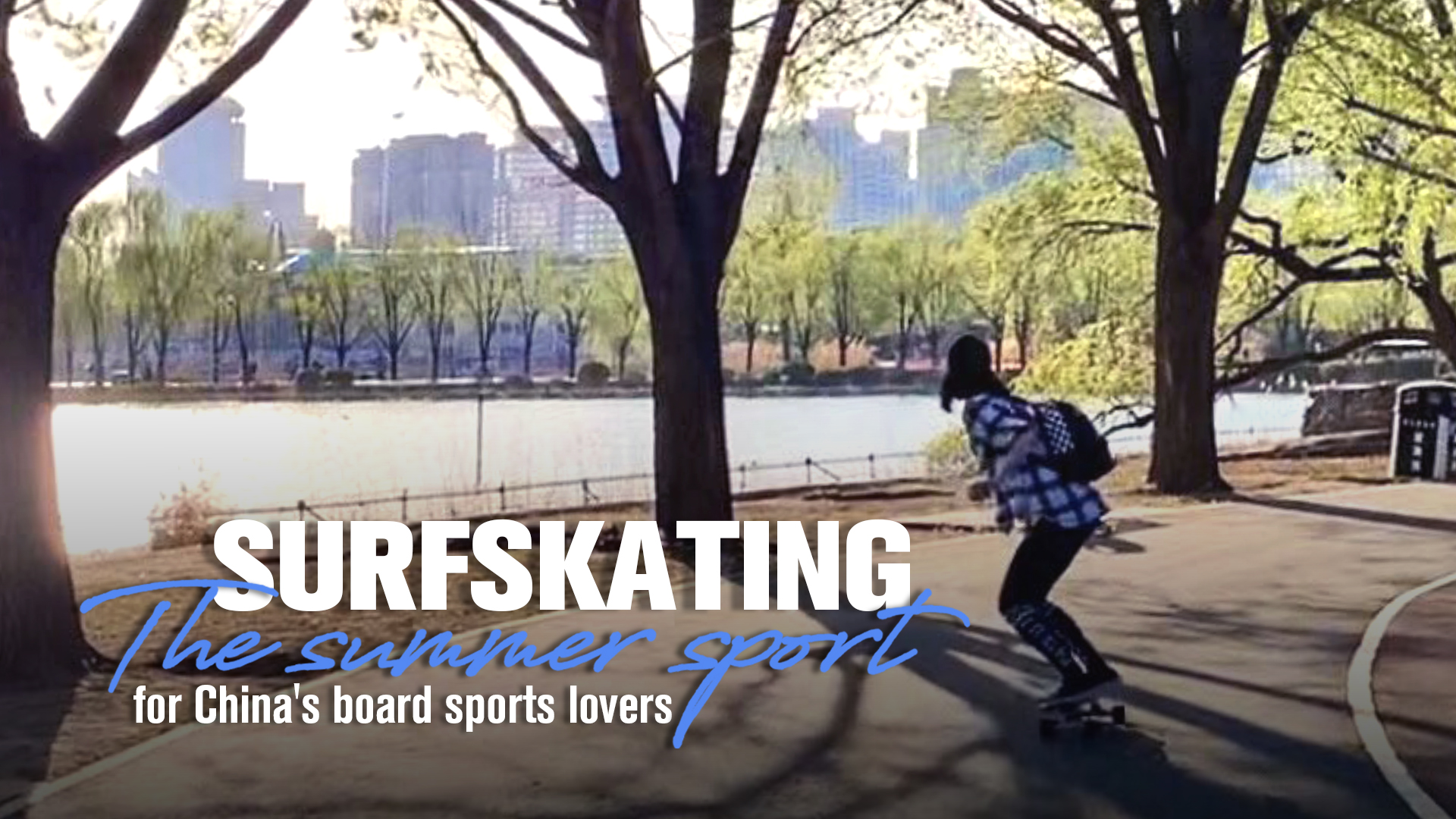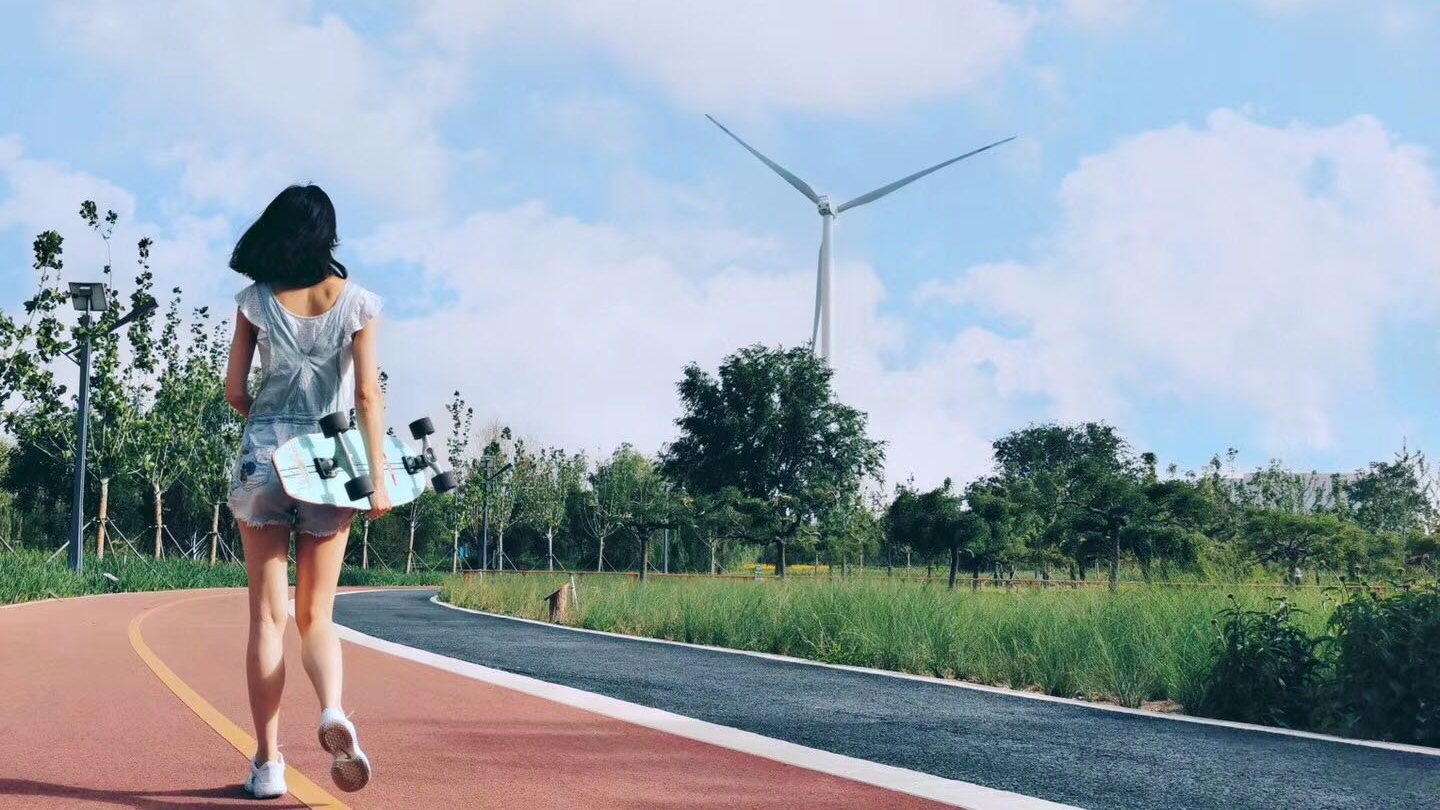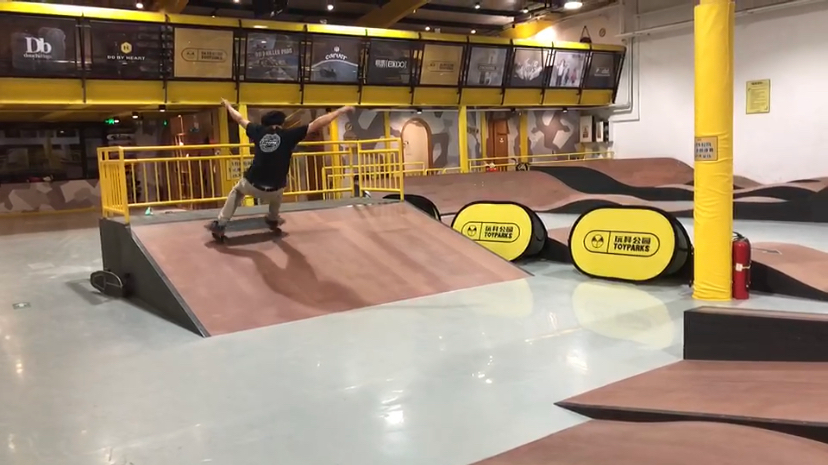01:56

Snowboarding, skateboarding and surfing might be the activities that first come to mind for most board sports lovers.
But now board lovers in China have found a new option – surfskating.
It only got popular recently in big cities like Beijing, Shanghai and Shenzhen. According to one female surfskater, the sport's "easy-to-pick-up" and "environmentally-friendly" nature made many Chinese board lovers fall in love with it instantly.
"Before surfskating, I have snowboarded and also tried skateboarding, said Dong Fanxuan, a female surfskater in Beijing.
"Compared to skateboarding, surfskating is much easier to pick up and also safer because the wheels grip the road better and it takes different ways to generate momentum."

Dong Fanxuan, a female surfskater in Beijing, plans to surfskate in many different cities to develop her skills. /Dong Fanxuan
Dong Fanxuan, a female surfskater in Beijing, plans to surfskate in many different cities to develop her skills. /Dong Fanxuan
Surfskating's unique method of propulsion has to do with its origin. As Californian surfers were looking for ways to practice their moves during flat sea days, they invented surfskating which enabled them to "surf" on hard surfaces.
That's why many surfskaters say their sport is much closer to surfing than other flat land boardsports.
"For people like me who love to surf but can't due to various reasons, surfskating helps us experience similar moves and also brings the excitement of skating," said Dong.

Surfskaters shift their bodies in a sharp turn, which is a basic surfskating skill called "carving". /Zhang Xiaomeng
Surfskaters shift their bodies in a sharp turn, which is a basic surfskating skill called "carving". /Zhang Xiaomeng
When summer arrives, many snowboarders also begin to surfskate at outdoor ski resorts, including the main venue for the 2022 Winter Olympics – Chongli ski resorts close operations.
"Summer is really not the best time to snowboard. So I turn to surfskate in summer as their moves are similar," Li Yue, a 27-year-old female snowboarder, said.
"There aren't any requirements for road or weather conditions when you surfskate really. That's, I think, also the reason why it got popular."
Perhaps surfskating's popularity is also connected to the rise in companies providing equipment for extreme outdoor sports.

ToyParks – a company dedicated to providing surfskating facilities and training resources in Beijing, hosts various surfskating activities all year round. /Dong Fanxuan
ToyParks – a company dedicated to providing surfskating facilities and training resources in Beijing, hosts various surfskating activities all year round. /Dong Fanxuan
ToyParks is one of them. Besides for just selling equipment, the company also hosts classes to help people practice.
Veteran boarder Zhang Xiaomeng is now a coach at ToyParks and has helped develop systematic training guides for people, board newbies and veterans alike, who want to try surfskate.
"What we want is to develop a comprehensive set of training methods to help board lovers, kids and adults, so that they can grasp the skill in a safe environment," said Zhang.
The site is closed for now due to COVID-19, but the company hosted various surfskating activities as their year-round tradition.

Carver Skateboards is a notable surfskating brand which originates from California, the U.S. /Dong Fanxuan
Carver Skateboards is a notable surfskating brand which originates from California, the U.S. /Dong Fanxuan
Despite its popularity in big cities, surfskating is by any sense still a niche sport.
"Perhaps it is a culture thing. Unlike overseas, we don't have many public parks which offer either open space or track for surfskating or boarding activities in general," said Gong, who plans to surfskate in many different cities to develop her skills.
"However, with more professional venues and training resources, I believe the sport has a bright future in China."
(Cover image: Dong Fanxuan, a female surfskater in Beijing.)
Writer: Niu Yuan
International Editor: Josh McNally
Videographer and editor: Niu Yuan
With special thanks to Dong Fanxuan, Li Yue and Zhang Xiaomeng for providing video footage